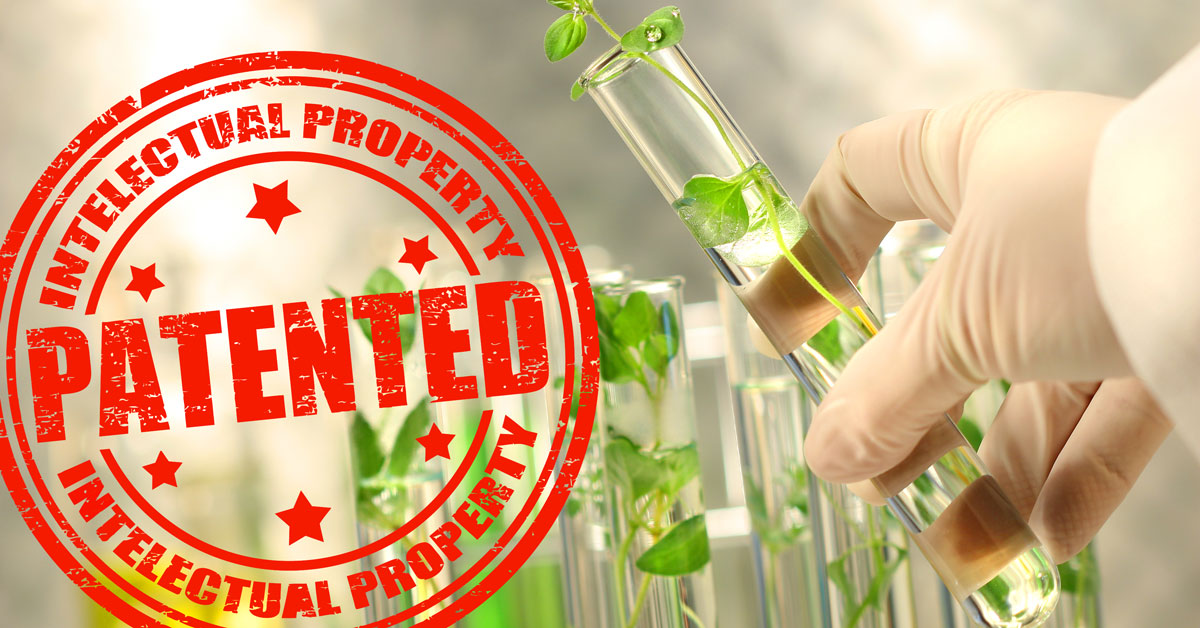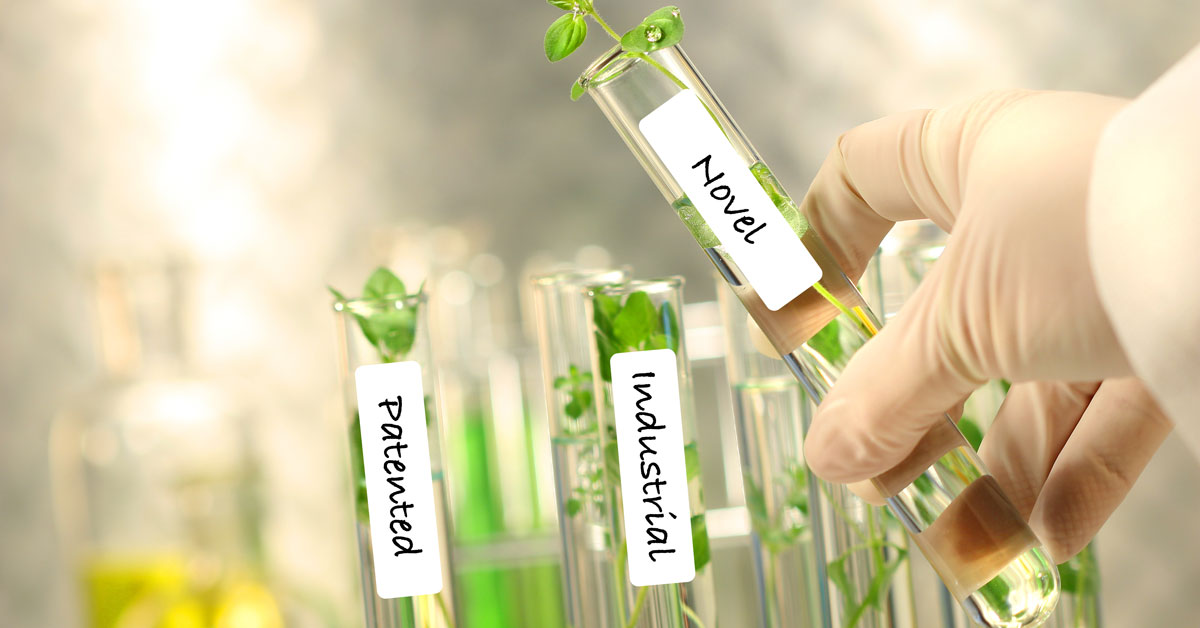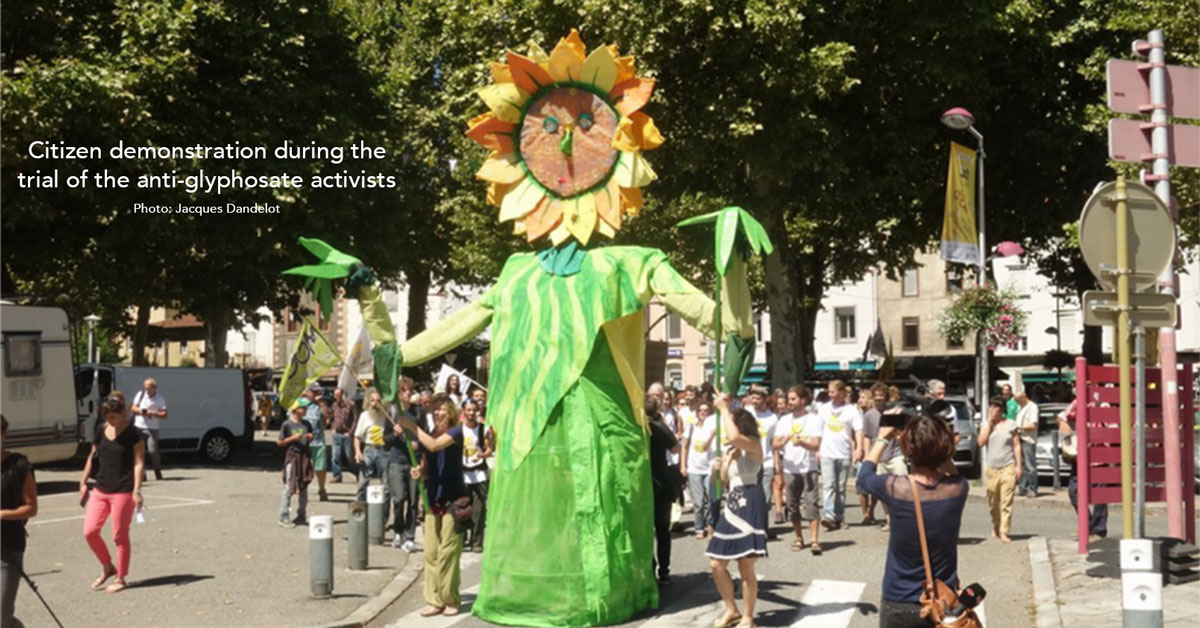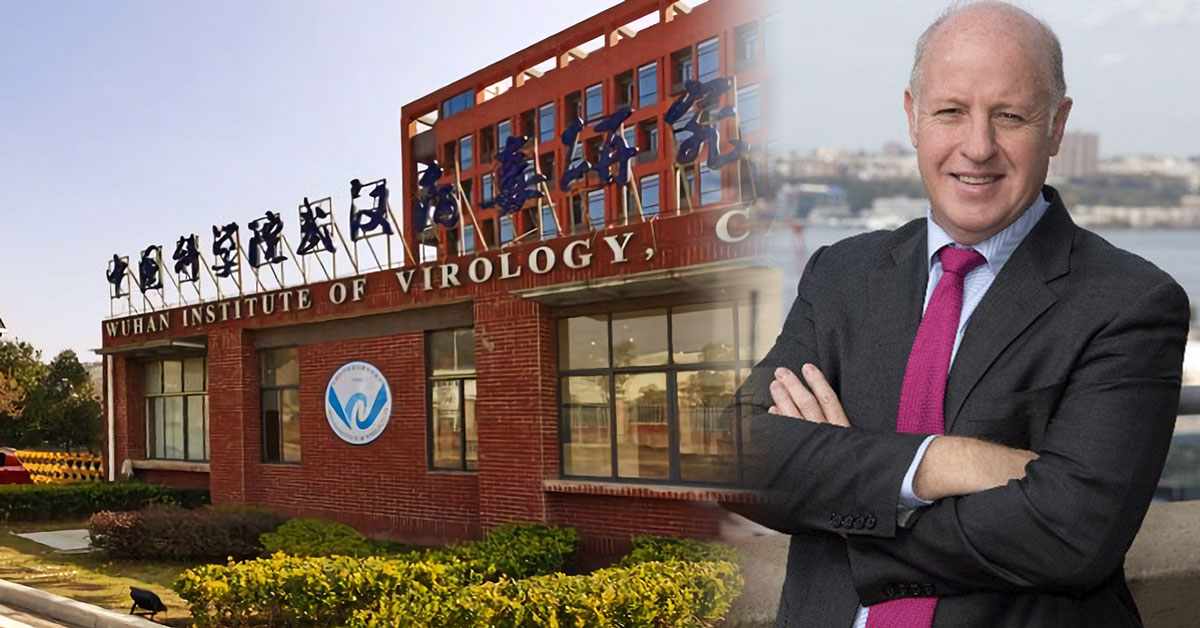Don't exclude gene editing from GMO safety rules — scientists
An important review of the safety of gene-edited plants for health and the environment has been published by a group of scientists working for national government regulatory agencies in various EU member states and Switzerland. The review discusses how to assess the risk and safety of gene-edited plants in light of the European Food Safety Authority (EFSA) opinions on this topic. It challenges EFSA to improve its guidance on the risk assessment of gene-edited plants and points out some misconceptions on the part of EFSA and the scientists and lobbyists who want to weaken regulations on gene-edited plants. Among the misconceptions that the review highlights are:
- The claim that gene editing is precise is NOT accurate
- Changes brought about by gene editing are NOT the same as those produced by conventional breeding
- Gene editing applications that don't deliberately introduce "foreign DNA" are not by default safer than genetic engineering methods that do
- The fact that some forms of gene editing are meant to only bring about "small" changes in DNA is NOT a reliable denominator of risk/safety
- Not enough is known about the off-target modifications brought about by some forms of gene-editing to assume safety
- If gene-edited plants can, as claimed, be developed at greater speed, that can mean HIGHER risk.
Europe's food retail sector calls for clear regulation of new GMOs
Leading companies of the European food retail sector, among them major international brands as well as numerous national and organic retailers, have issued a statement demanding that the proven-effective regulation of GMOs on the European market be maintained. This should apply just as much to products of "new genetic engineering" methods such as CRISPR or TALEN, as it already does to those of "old genetic engineering" (primarily soy, maize, rapeseed).
Deregulation of new genetic engineering: Reasonable? Proportional?
The EU Commission has published a report setting out plans to change EU GMO regulation. According to this report, plants derived from gene-editing could be exempt from EU regulation if their intended characteristics are already known from conventional breeding and no transgenes have been inserted. In addition, it proposes that potential benefits should be taken into consideration in the respective approval processes. However, a Testbiotech analysis calls the proportionality of the planned changes into question, as they will have a serious impact on the interests of consumers, farmers, breeders and food producers. On the other hand, any potential benefits are likely to be minor or insignificant.
Genetic engineering for sustainable food systems? Register for webinar now!
The European Commission has said the current EU legislation on GMOs is “not fit for purpose” for some new GM technologies and their products. It believes these products can “contribute to sustainable food systems” and therefore wants to exclude certain GM plants from the EU requirements for GMO authorisation, traceability and labelling. But what would that mean for food, farmers and nature? Would it really help make EU farming more sustainable? The Greens/EFA in the European Parliament have organised a webinar on 13 July, 16:00 to 17:30 CET, in which they will discuss the Commission’s plan with a scientist, a farmer, a plant breeder and a non-GMO certifier, as well as a representative of the Commission.
Farm ministers “must stop wasting time pushing new GMOs”
Responding to discussions between EU agriculture ministers on the regulatory future of new GMOs, Mute Schimpf, food and farming campaigner at Friends of the Earth Europe, said: “Farming ministers and the rest of the EU need to stop wasting time and resources trying to find loopholes to push new, untested GMOs onto our fields and plates without any safety protocols. The last thing we need is a raft of patented crops designed to prop up the industrial farming system that EU decision-makers should be working to dismantle. Instead of putting more money in the hands of the biotech industry, we need to urgently invest in small-scale farming and agroecology.”
Climate crisis: EU agriculture needs systemic solutions, not new GM technology
As the debate around GM crops heats up, tried-and-tested solutions to tackling the climate crisis are in danger of being left out in the cold. Any deregulation of new GMOs threatens to undermine diverse and self-determined approaches to seed and food production that enhance biodiversity and soil health, and strengthen the resilience of entire agro-ecosystems, argues Stefanie Hundsdorfer.
Increasing number of patents on food plants and New GE
Testbiotech has published a new report showing the increasing number of patent applications being filed and granted in Europe on methods of gene-editing. The patent landscape is dominated by the Corteva group, which resulted from a merger of Dow AgroSciences and DuPont/Pioneer. Apart from its own patents, Corteva controls access to many other patents needed by breeders who want to use CRISPR/Cas technology. This development strongly contradicts the often repeated claim that CRISPR/Cas technology is cheap and therefore more accessible for small- and medium-sized breeding companies.
Are gene-editing technologies traditional breeding? Not if they are linked to intellectual rights
The UK government consultation on the deregulation of gene editing sought views on what the farm ministry DEFRA said were gene-edited organisms “possessing genetic changes which could have been introduced by traditional breeding”. The document also alludes to genome-edited organisms that “could have been produced naturally”. The problem with this approach, explains legal expert Kathleen Garnett, is that the modern plant breeding industry makes money from new varieties via payments achieved through plant variety rights (PVR). To qualify for a PVR, agricultural breeders are required to make their novel varieties New, Distinctive, Uniform and Stable (NDUS). If the variety already exists in nature, it would not fulfil the PVR criteria and an application for the right would almost certainly fail. Describing any new variety that is the beneficiary of a PVRs as ‘traditional’ or ‘natural’ is thus problematic.
UK: £695,933 of taxpayer money went to failed GM wheat project
Science funding body the BBSRC spent hundreds of thousands of pounds of British taxpayers' money on a failed project to genetically engineer wheat to enhance photosynthesis and thus increase yield. The project, which ran from 2016 to 2019 got £695,933 of public money but though it appeared to work in the greenhouse, in common with countless other experimental GM crops, it failed in the field. This fact is buried on a little known UK government website.
GM plants are a sorry use of lab bench space — professor
Commenting on the story above, E. Ann Clark, Associate Professor (retired), Plant Agriculture, University of Guelph, Canada, said: "Let's be honest. The one and only reason these people, corporations, and governments are funding this sorry use of [lab] bench space is because it may yield a proprietary product."
UK: Former Tory Party advisor wants us to swallow GM food
An article has been published in the Financial Times, with the headline, "We must overcome the fear of genetic engineering in our food", and the subhead, "From countering climate change to saving bananas, new gene-editing technology could prove crucial". The author is Camilla Cavendish, a former head of the Number 10 Policy Unit. Cavendish's article appears to be a ham-fisted attempt to warm up the British public to accepting GM, in the wake of the government's so-called public consultation on gene editing. We debunk her claims.
Changes in GM food laws will imperil public health
In a powerful letter to the Financial Times, Dr Michael Antoniou, writing as a career-long contributor to medical biotechnology, rejects Cavendish's attempt (see above) to justify deregulation of GM foods on the basis of widespread public acceptance of GM medicines, including some COVID vaccines. He says deregulation would endanger public health. The original paywalled link is here; an archived version can be accessed at the link above.
UK: 28 organisations say NO to GMO wheat trial
GM Freeze and 25 other organisations — including GMWatch — have come together to ask DEFRA not to allow Rothamsted Research to plant an open field trial of GM wheat. The submission says, "The research is at an early stage and should be conducted in a contained environment. The risk assessment is incomplete. The field trial represents a risk and won't provide any public benefit."
Brexit's real driving force is lower standards and less regulation
Deregulated food standards have always been at the heart of the Brexit plan. Hard Brexit has never been about sovereignty — it’s about creating a legislative bonfire to decimate protections enshrined in law, and hold the UK hostage to corrupt corporate interests. GM foods are one example.
Use Brexit to grow GM crops, bring back imperial measurements and scrap GDPR, taskforce urges
Boris Johnson should use Brexit to support UK farmers to grow GM crops, bring back imperial measurements and scrap General Data Protection Regulation (GDPR), a UK government taskforce has said.
European Parliament calls for ban on gene drive technology
The European Parliament has confirmed its precautionary stance towards the use of a new genetic engineering technology called gene drive. In the Parliament's report on the EU’s Biodiversity Strategy for 2030, adopted at the Parliament’s plenary on 8 June, Parliamentarians demand that "no releases of genetically engineered gene drive organisms should be allowed, including for nature conservation purposes, in line with the precautionary principle". Mareike Imken, coordinator of the European Stop Gene Drive Campaign, said: "The European Parliament recognises that this technology raises a series of scientific, regulatory, societal and ethical questions and concerns."
The return of pink bollworm in India’s Bt cotton fields
The return of the pink bollworm pest in several Indian states has provided cause for concern about resistance in pests towards the toxins produced in Bt cotton plants, as well as about farmers’ livelihood security. A new study is the first to provide empirical evidence on the socio-economic consequences of recent bollworm attacks in India. It shows why some farmers find it difficult to deal with the consequences of this technological failure.
Indian govt urged to take action against illegal herbicide tolerant/Bt cotton growing
The National Seed Association of India (NSAI) and the Federation of Seed Industry of India (FSII) have urged the government to act against a sudden surge in illegal cultivation of dual trait herbicide-tolerant (HT)/Bt cotton in the country. If the sale of unapproved HT/Bt cotton seed is not stopped, it would spell disaster for the industry and farmers, they said.
Company involved in illegal trade in GMO cotton belongs to Special Assistant to Pakistan's Prime Minister
A company owned by the Special Assistant to Prime Minister on Food Security, Jamshed Iqbal Cheema, has been found to be involved in the illegal sale of Bt cotton illegally planted on almost 10,000 acres of land. But despite Cheema’s firm being implicated in criminal activities damaging to Pakistan’s cotton sector, no action has been taken against him or his company.
Mexico wants to import non-GMO corn and US farmers say they can deliver it
While US agribusiness groups are trying to pressure Mexico into abandoning their announced bans on glyphosate and imports of GM corn by 2024, US suppliers of non-GMO seed and grain see an opportunity to supply Mexico with non-GMO corn. "Could we supply Mexico? Absolutely," says Bill Niebur, president of High Fidelity Genetics, an Iowa-based non-GMO corn seed company. "In terms of acres, it's not a problem. Instead of criticizing Mexico, let's provide it to them."
Ominous first step in EU renewal process for glyphosate
On 15 June four EU member states (France, Hungary, the Netherlands and Sweden) released a statement which concluded that glyphosate does not pose risks for human health. The announcement represents the first step in the new safety assessment of glyphosate, the current market approval for which expires in December 2022.
EU approval of glyphosate: The scandal continues
Six years after glyphosate was classified as carcinogenic by the WHO's cancer research agency IARC, EU authorities want to extend the approval of glyphosate again, despite the fact that the glyphosate manufacturers have not submitted a new (and exonerating) cancer study for the new approval procedure. The authorities are therefore stating, on the basis of the highly controversial old manufacturer studies from the previous approval procedure, that the existing regulatory classification of glyphosate as non-carcinogenic should be maintained. "This is incredibly irresponsible and negligent," explains Helmut Burtscher-Schaden, environmental chemist at GLOBAL 2000.
Corporate studies asserting glyphosate safety show many flaws, new analysis finds
A new analysis of more than 50 previously secret, corporate-backed scientific studies is raising troubling questions about a history of regulatory reliance on such research in assessing the safety of glyphosate. In the report, researchers from the Institute of Cancer Research at the Medical University of Vienna in Austria said a thorough review of 53 safety studies submitted to regulators by chemical companies showed that most do not comply with modern international standards for scientific rigour, and lack the types of tests most able to detect cancer risks. "The quality of… many of these studies is very poor. The health authorities... accepted some of these very poor studies as informative and acceptable, which is not justified from a scientific point of view, " Siegfried Knasmueller, lead author of the analysis, said. The analysis is available here.
How pesticide companies corrupted the EPA and poisoned America
The Intercept has interviewed more than 24 people with expertise on the regulation of pesticides, including 14 who have worked in the EPA’s Office of Pesticide Programs (OPP). From those interviews, the investigative journalist Sharon Lerner concluded that the pesticide industry’s "enormous corporate influence has weakened and, in some cases, shut down the meaningful regulation of pesticides in the US and left the country’s residents exposed to levels of dangerous chemicals not tolerated in many other nations." Among the examples of the EPA’s failures to protect that The Intercept unearthed during its research were:
- The waiver, at industry request, of the vast majority of toxicity tests that could yield useful information on pesticide impacts
- The squelching of an internal report warning of the link between glyphosate and cancer
- The refusal to investigate evidence of carcinogenicity for another ingredient in Monsanto’s glyphosate-based Roundup
- The failure to review evidence of brain-damaging impacts of a neonicotinoid pesticide
- The dismissal of scientific research demonstrating that the insecticide malathion causes cancer.
Whistleblowers expose corruption in EPA chemical safety office
Managers and staff in the US Environmental Protection Agency’s Office of Chemical Safety and Pollution Prevention tampered with the assessments of dozens of chemicals to make them appear safer, according to four scientists who work at the agency. The whistleblowers provided evidence of pressure within the agency to minimize or remove evidence of adverse effects of the chemicals, including neurological effects, birth defects, and cancer.
Bayer to rethink Roundup in US residential market after judge nixes $2 billion settlement
Bayer said it will review the future of its Roundup and other glyphosate-based weedkillers in the US residential market after a judge rejected a $2 billion plan to settle future claims alleging the herbicide causes cancer. The company also said it will reassess its efforts to settle around 30,000 ongoing claims by Roundup users who are alleging they have become sick from the product. The announcement came hours after a US judge rejected Bayer's $2 billion class action proposal, which would have provided compensation in return for placing limits on lawsuits. US District Judge Vince Chhabria in San Francisco called the plan "clearly unreasonable".
Glyphosate associated with 503 infant deaths per year in Brazil — study
In Brazil, glyphosate contamination of water, driven by expanded GM soy production, leads to a large increase in infant mortality, as well as a higher probability of low birth weight and a higher probability of premature births, according to a study. The study found that the spraying of glyphosate on GM soybean crops led to a 5% increase in infant mortality in municipalities that receive water from soybean regions. This represents a total of 503 more infant deaths per year associated with the use of glyphosate in soy production.
Herbicide resistance expanding in weeds
In 2020, 19 weed samples were submitted for herbicide resistance screening to Michigan State University (MSU) Plant & Pest Diagnostics. From these 15 samples, 11 were confirmed to have some type of herbicide resistance. Two of these cases had not previously been confirmed in the counties in which they were sampled.
Glyphosate herbicides persist for years in wild plants and cause flower infertility
Glyphosate-based herbicides, which are widely used in agriculture, forestry and other applications, can harm the reproductive health of a common perennial plant found in forests in British Columbia, Canada. Researchers reported that glyphosate-based herbicides (GBH) deformed various reproductive parts on prickly rose (Rosa acicularis) a year after the chemicals were first applied in both field sites and experimental plots.
Forests in Canada sprayed with glyphosate herbicides
A video shows how in British Columbia, Canada, people and animals are being poisoned as they eat forest fruits and shoots in areas that have been sprayed with glyphosate herbicides.
Canada: Stop spraying glyphosate in woods, says Conservation Council
The executive director of the Conservation Council of New Brunswick, Lois Corbett, says there is overwhelming public support for an end to herbicide spraying in woods. New scientific evidence showing glyphosate’s effects on plants and animals, its long-term presence in rivers and watersheds, and mounting lawsuits related to the human health impacts, must compel the committee members follow the lead of jurisdictions across the world in banning glyphosate-based herbicides.
Maine aerial forestry spray ban of glyphosate and other herbicides vetoed by governor
Maine Governor Janet Mills has vetoed legislation prohibiting the aerial use of glyphosate and other dangerous herbicides in forestry practices. The proposed ban was supported by a wide range of health and conservation groups.
French court rules anti-glyphosate protest necessary and proportional to protect public health
On 1 June, 21 anti-glyphosate activists were acquitted of criminal damage by a court in Foix, France, for making containers of glyphosate-based herbicides (like Roundup) unsellable by covering them with paint. Their defence lawyer Guillaume Tumerelle argued that their actions during their three protests had been justified by the toxicity of glyphosate-based herbicides. The court agreed, ruling that the activists' actions were justified by necessity and proportional to the dangers posed by these herbicides.
Low-till doesn't need glyphosate (video)
A farmer describes the benefits of using sheep and cover crops to control weeds in a low-till organic arable system. There's no need to use toxic glyphosate if you want to reduce tillage.
EU trade unions call for immediate ban on glyphosate herbicides to protect workers
The European Federation of Food, Agriculture and Tourism Trade Unions (EFFAT) has called for an immediate ban on glyphosate-based herbicides and other harmful pesticides. EFFAT stated, “Protecting agri-workers’ health is EFFAT’s number one priority. EFFAT calls for an immediate ban on glyphosate in the renewal process, which ends in 2022. EFFAT also calls for more investments in the promotion of alternatives to the use of glyphosate and other harmful pesticides and urges a clear governance in charge of a smooth transition with the involvement of Trade Unions. Existing jobs must be protected and new quality ones created."
Texas wine grape growers sue Bayer-Monsanto over dicamba drift damage
A new lawsuit claims that dicamba herbicide drift extensively damaged vineyards in Texas. Dicamba is sprayed on GM dicamba-tolerant cotton, which can be grown close to the vineyards. Those vineyards’ owners, according to the law firm that filed the case against Bayer-Monsanto and BASF, “saw their highly productive vineyards wither and, in some cases, die as a result of the dicamba-resistant seed system’s use on over two million surrounding acres of cotton". The suit alleges that some grape growers saw a 90% reduction in yield owing to dicamba drift.
Pesticides are killing the world’s soils
Like citizens of an underground city that never sleeps, tens of thousands of subterranean species of invertebrates, nematodes, bacteria and fungi are constantly filtering our water, recycling nutrients and helping to regulate the earth’s temperature. But beneath fields covered in tightly knit rows of corn, soybeans, wheat and other monoculture crops, a toxic soup of insecticides, herbicides and fungicides is wreaking havoc, according to an analysis in the journal Frontiers in Environmental Science.
US beekeepers report 2nd highest colony losses in history
The Bee Informed Partnership has reported the second-highest annual losses of honeybee colonies for the second year in a row.
US judge sets trial in litigation against Syngenta alleging weedkiller causes Parkinson’s disease
A federal judge appointed to coordinate proceedings for claims that Syngenta AG’s paraquat weedkillers cause Parkinson’s disease has set a jury trial date for Nov 15, 2022. There are 157 cases pending in state and federal courts around the country. The plaintiffs allege Syngenta was aware of the risks but failed to warn users.
Ultra-processed foods, patents and monocrops
Bill Gates and his agribusiness industry partners are proposing to transform our food and how it is produced. To the techno-food industrialists, hunger and climate change are problems to be solved with data and engineering. The core ingredients of their revolutionary plan: genetic engineering — and patenting — of everything from seeds and food animals, to microbes in the soil, to the processes we use to make food. Local food cultures and traditional diets could fade away as food production moves indoors to labs that cultivate fake meat and ultra-processed foods.
Not ready to eat GMO animals? Then you might not want to order the salmon
Biotech company AquaBounty has announced that it is harvesting several tons of GM salmon, which will soon be sold at restaurants and other “away-from-home” dining retailers around the US. So far just one distributor — Samuels and Son Seafood — has reportedly said that it will be selling the novel salmon. But AquaBounty has announced plans to sell its salmon via “food service channels” across the Midwest and East Coast. By selling to restaurants and cafeterias, rather than retailers, AquaBounty can avoid the federal GMO labelling law. And this sets a troubling precedent. Consumers who do not want to eat GMO fish will have to avoid salmon altogether when dining out.
Scientists, and two major American universities, are trying to patent methods for editing human embryos
Two prominent groups of scientists, and two major American universities, are trying to patent methods for editing human embryos, with reproductive use clearly intended.
Mixed cultures for a greater yield
Research in Spain and Switzerland has revealed that mixed cultures produce a much higher yield than monocultures in arable farming. Compared to monoculture farming, even a mixture of two species increased yield by 3% in Spain and 21% in Switzerland. Where the researchers had sown four species alongside each other, the yield increase was as high as 13 and 44 percent in Spain and Switzerland respectively.
Biology delivers high yields with fewer chemical inputs
Nature has provided most of the answers for the balanced farming that system manager Tim Parton is running in Staffordshire, UK, which is delivering double-digit wheat yields with a much reduced reliance on chemical inputs. Having started his Regenerative Agriculture journey back in 2009 by concentrating on soil health, he is now overseeing a complete system change based on biology, which only occasionally needs a helping hand. It’s still possible to produce 10t/ha wheat crops without a heavy reliance on nitrogen (N) fertiliser, fungicides and cultivations,” he says. “If you have a biologically active soil, in time the rest will follow.”
"Miraculous" mosquito hack cuts dengue by 77%
Dengue fever cases have been cut by 77% in a "groundbreaking" trial that manipulates the mosquitoes that spread it, say scientists. They used mosquitoes infected with "miraculous" bacteria that reduce the insect's ability to spread dengue. The trial used mosquitoes infected with Wolbachia bacteria. One of the researchers, Dr Katie Anders, describes them as "naturally miraculous". This is an obvious alternative to GM mosquitoes deployed against dengue.
LOBBYWATCH
Bill Gates: Stop telling Africans what kind of agriculture Africans need
Africans have long been told that their agriculture is backward and should be abandoned. They are told that Western science and technology, in the form of seeds modified by science and technology, synthetic fertilizers and pesticides, petroleum-fuelled machinery and artificial irrigation are key to that miracle. A primary proponent of this view is the Gates-funded Cornell Alliance for Science (CAS). In contrast, the Alliance for Food Sovereignty in Africa (AFSA), which represents more than 200 million farmers and others across Africa, holds that agroecology is what the continent needs. This mission has put AFSA, the largest social movement in Africa, at odds with the CAS and by extension the Gates Foundation.
Gates Foundation trustee jumps ship
Warren Buffett has announced he is resigning as a trustee of the Gates Foundation, clearly distancing himself from an organization swimming (drowning?) in allegations of misconduct.
COVID-19
Daszak forced to step down as lead investigator into pandemic origins
Peter Daszak, who orchestrated the influential statement in the Lancet which effectively branded the lab leak hypothesis a conspiracy theory, has been forced to take a step back. Last September GMWatch reported the outrage of scientists over Daszak’s appointment as lead investigator into the origins of the pandemic for the Lancet COVID-19 Commission. Now Daszak has been "recused from Commission work on the origins of the pandemic". A recusal describes the way that judges, for example, excuse themselves from presiding over cases due to potential conflicts of interest or lack of impartiality. It seems that Daszak’s leadership role in the Lancet Commission’s task force has finally been recognised as fatal to its credibility.
Experts who publicly dismissed SARS-CoV-2 lab origin theory had suspicions the virus was genetically engineered
Emails from and to Dr Anthony Fauci obtained via Freedom of Information requests have been published. They show that experts who definitively dismissed the lab leak origin theory of SARS-CoV-2 thought there were suspicious aspects of the virus. In an email to Fauci, Kristian Andersen says: "(We) all find the genome inconsistent with expectations from evolutionary theory" (i.e. evolutionary adaptation from animal to human) and "some of the features (potentially) look engineered". Yet shortly afterwards Andersen and colleagues published an article in Nature Medicine that dismissed the lab leak theory out of hand!
US experts press calls for China to allow deeper inquiries into the pandemic’s origins
President Biden has ordered US intelligence agencies to “redouble their efforts” to find out where the SARS-CoV-2 coronavirus originated, giving them 90 days to examine two theories: that the virus was accidentally leaked from a lab in China or that it was first transmitted from animal to humans outside a lab.
Beijing’s useful idiots
On the question of the origin of SARS-CoV-2, only now is acceptance emerging that the science establishment colluded to dismiss the lab leak hypothesis as a conspiracy theory, assisted by prominent experts with clear conflicts of interest, patsy politicians and a pathetic media that failed to do its job, writes journalist Ian Birrell. And yet at the heart of this scandal lie some of the world’s most influential science journals. These should provide a forum for debate as experts explore and test theories, especially on something as contentious and fascinating as the possible origins of a global pandemic. Instead, some of the leading journals have played a central role in shutting down discussion and discrediting alternative views on the origins, with disastrous consequences for our understanding of events. In particular, the stance taken by the journal Nature has been questionable. Why have journals acted in this way? Possible reasons include lucrative sponsorship deals between Chinese institutions and some journal publishing houses.
The COVID-19 lab leak hypothesis: Did the media fall victim to a misinformation campaign?
The theory that SARS-CoV-2 may have originated in a lab was long considered by mainstream media to be a debunked conspiracy theory, but some experts are revisiting it amid calls for a more thorough investigation. In an article for the BMJ, Paul Thacker explains the dramatic U-turn and the role of contemporary science journalism. Thacker points out that intelligence sources had treated the lab leak theory seriously from early on. But science journalists ignored these early warnings, leading to a year of biased, failed reporting, in which anyone who took the lab leak theory seriously was dubbed a conspiracy theorist. None of the journalists probed the conflicts of interest of Peter Daszak, a much quoted opponent of the lab leak theory, whose EcoHealth Alliance helped fund risky gain-of-function research with coronaviruses at the Wuhan Institute of Virology, China.
“Puff piece for Peter Daszak” attacks “anti-GMO movement’s obsession” with lab leaks
Andrew Kimbrell, the public interest attorney who founded the Center for Food Safety, has accused a reporter for Mother Jones of running a hit piece on his organisation while trying to rehabilitate the sullied reputation of Peter Daszak, the scientist at the heart of the campaign to stop people taking the SARS-CoV-2 lab leak hypothesis seriously. Kiera Butler has run what Andrew Kimbrell describes — in an excoriating letter to Butler — as a biased agenda-driven piece that seeks to bash GMO critics for raising concerns over what they, like a good number of leading mainstream scientists, regard as reckless research.
How amateur sleuths broke the Wuhan lab story and embarrassed the media
The reason for the sudden shift in attitudes to the lab leak theory (see above) is clear: over the weeks and months of the pandemic, the pileup of circumstantial evidence pointing to the Wuhan lab kept growing — until it became too substantial to ignore. The people responsible for uncovering this evidence are not journalists or spies or scientists. They are a group of amateur sleuths, with few resources except curiosity and a willingness to spend days combing the internet for clues.
By investigating itself the US can answer many key COVID-19 origin questions
While it has been widely asserted that any useful fact-finding on the virus origins requires the cooperation of the Chinese Government, there remains much that is hidden inside the US. It may be enough.
British head of Wellcome Trust accused of "chilling" bid to stifle debate on Wuhan lab leak theory
Shortly before the pandemic, Sir Jeremy Farrar, head of the Wellcome Trust, delivered a speech offering his prescription for protection of public health: It required good leadership, free-thinking scientists and universal trust in their work. Farrar said he had "tremendous responsibility to be accountable for what we do and to be as transparent as we can be". So it is curious that since the COVID pandemic began, this influential figure has been at the heart of the scientific establishment’s efforts to stifle debate on the origins of the virus that emerged in Wuhan.
Facebook no longer censoring idea that SARS-CoV-2 was man-made
Facebook will no longer take down posts claiming that COVID-19 was man-made or manufactured, a company spokesperson said, a move that acknowledges the renewed debate about the virus’ origins.












